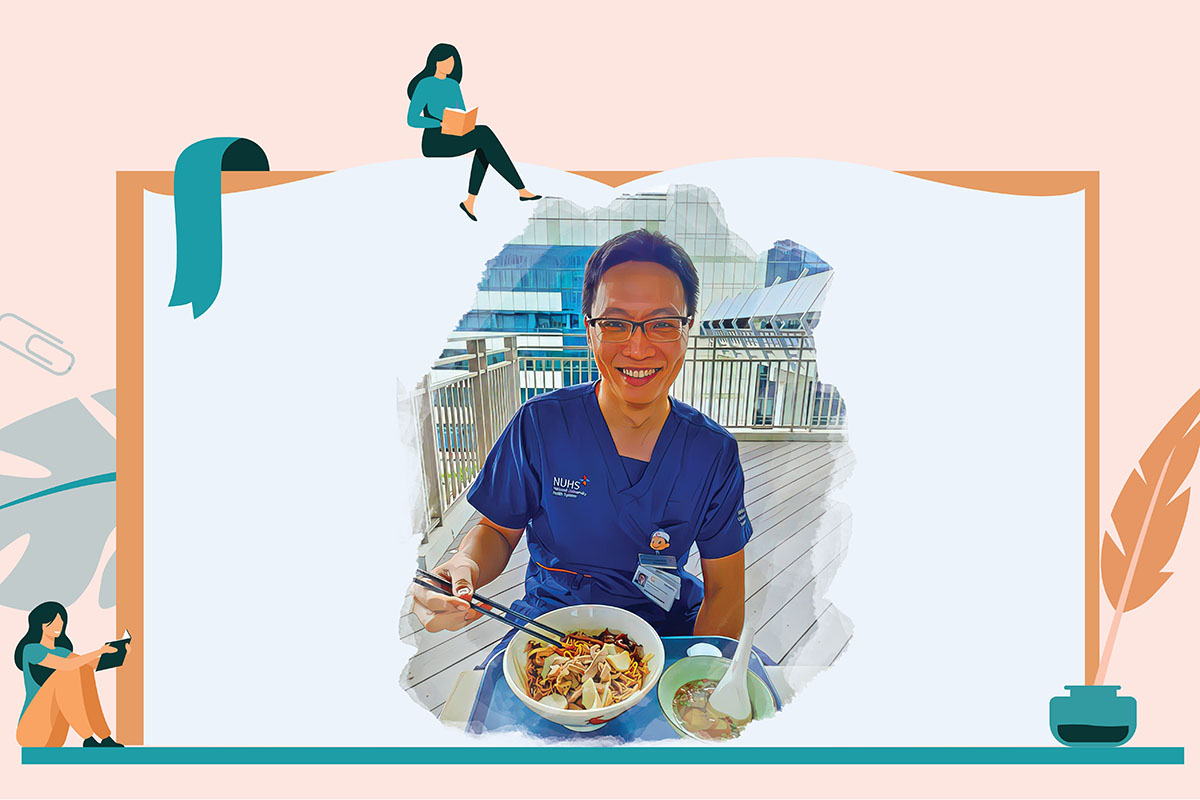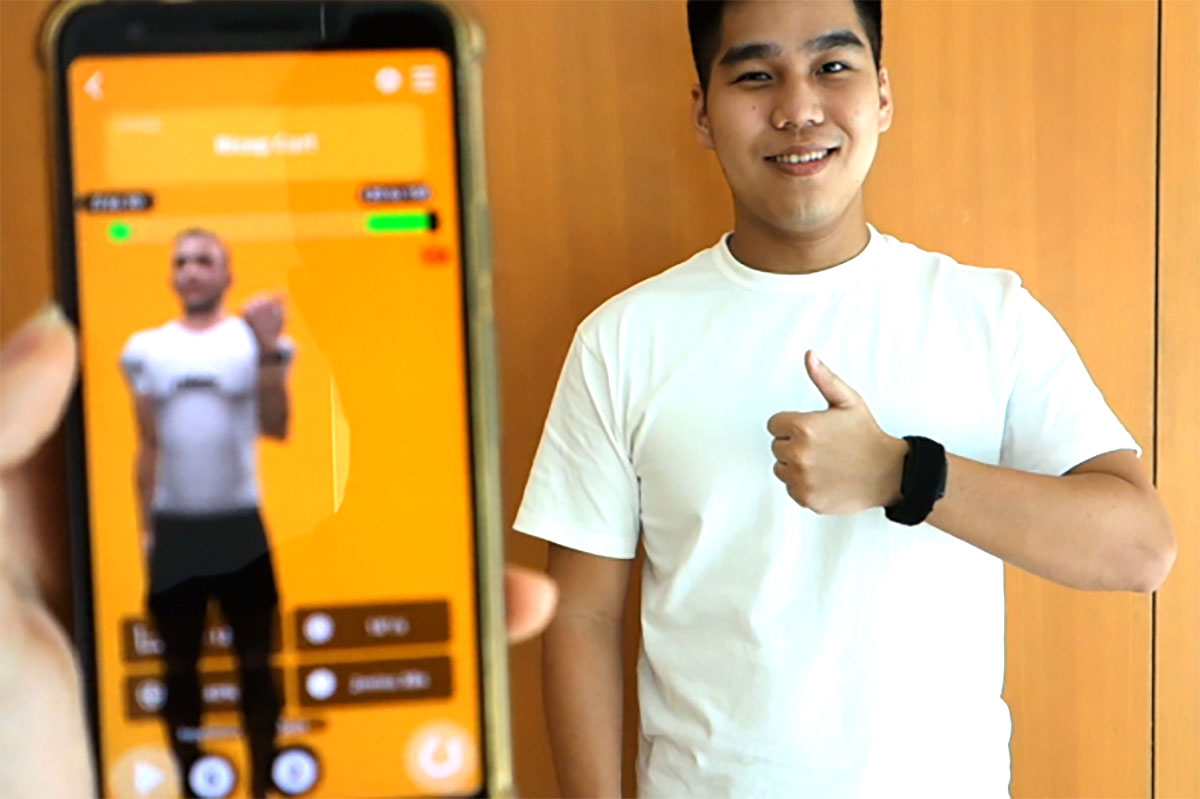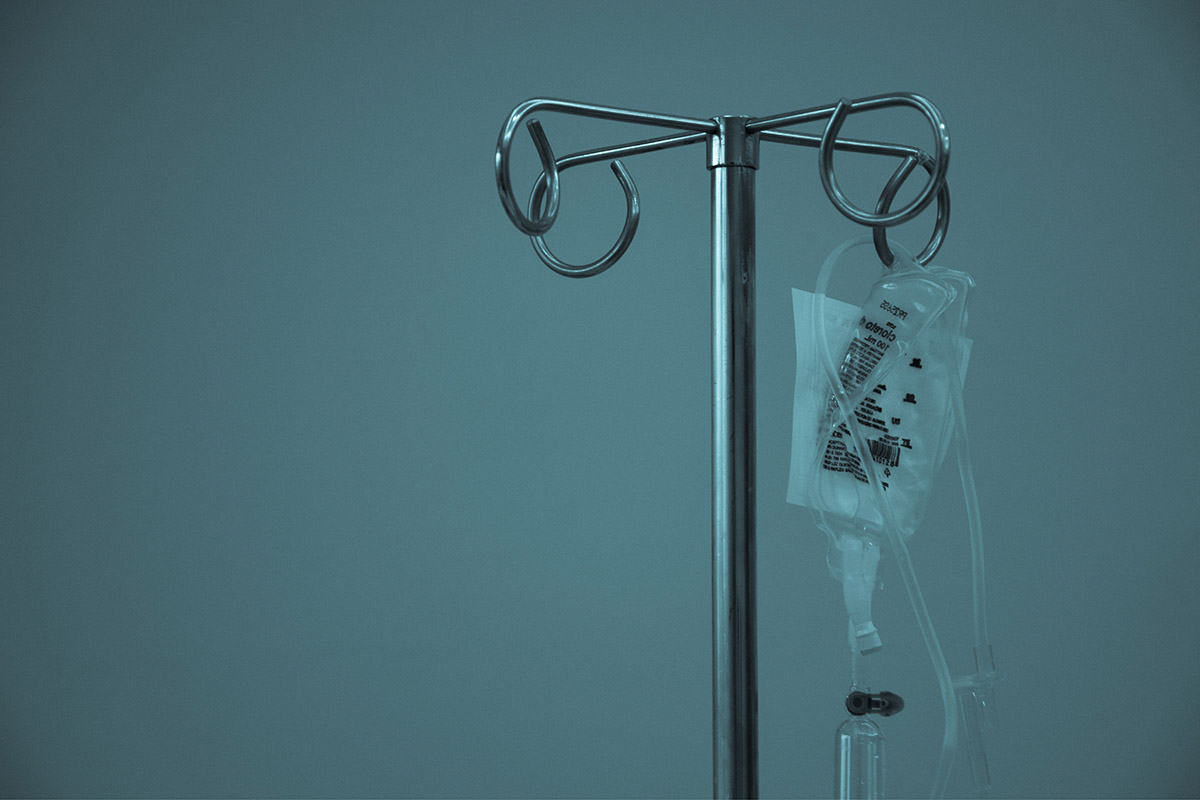
Issue 40 / November 2021
The Banyan Tree
Take 5 Breakfast:
Q&A with our NUS Medicine Continuing Education and Training Faculty

About:
Dr Chong Choon Seng is Assistant Dean (Enterprise) at the NUS Yong Loo Lin School of Medicine and Senior Consultant, Division of Colorectal Surgery at the Department of Surgery, National University Hospital. As the Programme Director of General Surgery Residency at the National University Health System (NUHS), Dr Chong is involved in both undergraduate and postgraduate medical education. He has also garnered numerous awards, including the Best Teacher Award, an NUH Excellence Teaching Award and has been a nominated role model for students for several years.
Q: What is your favourite breakfast?
A: Definitely minced pork noodle, otherwise known affectionately as “bak chor mee” in our Singapore colloquial tongue. This is my go-to meal to kick-start my busy workday.
Q: What is your biggest motivation in delivering continuing education?
A: I believe the rewards of being a teacher are similar across undergraduate and continuing education. It always fills me with great joy to see learners improve their critical thinking skills, as well as the multiplier effect of learners sharing and teaching their new-found knowledge within their community. This motivation is a common thread shared by many of my faculty colleagues. This spirit of guiding learners toward achieving competency and paying it forward by teaching others is a strong motivator for me to keep on delivering continuing education.
Q: What are the main differences between undergraduate teaching and continuing education?
A: I would say there are three main differences: the audience, the amount of time and the complexity. In continuing education, our learners consist of working professionals who come to class bringing their rich experience and expertise in their respective domains. They are not content with fundamentals and theoretical concepts. Instead, they seek applications, examples and case studies that enable them to draw upon their experience to maximise the takeaways from the course.
The need to maximise the course takeaways brings me to my second point on a major hurdle faced by many healthcare professionals when it comes to training. And that is the amount of time they can spare. Due to the nature of their work and work environment, face-to-face courses are often a challenge for healthcare professionals. It also comes with the drawback of troubling colleagues to cover for them when they need time off for professional development. To support the training needs of our time-starved healthcare professionals, we offer both self-paced asynchronous online courses and synchronous virtual classes.
“Lifelong learning is inherent to us as healthcare professionals…when it comes to continuing education in healthcare, an absence of progress means regress.”
My last point is that the nature of healthcare education lacks absolutes and thus creates complexity in the delivery. While absolute “yes or no” are acceptable answers for most undergraduates, this is hardly the case for continuing education learners. Through their working experience, they would have undergone situations of uncertainties that demand greater critical thinking skills to navigate through the complex decision-making process. And this is the reason why we emphasise case studies and facilitate discussions to allow our healthcare professionals to learn from each other’s experiences.
Q: Why do you think lifelong learning is important for healthcare professionals?
A: Lifelong learning is inherent to us as healthcare professionals as science and technology are constantly evolving. New medicines and new diagnoses develop, such as when we face novel diseases like COVID-19. This, coupled with improved technology, which widens our armamentarium, are just a few of the ways that healthcare evolves with time. Hence, when it comes to continuing education in healthcare, an absence of progress means regress.
It is especially challenging as healthcare workers are constantly on their feet and hardly have time for themselves, let alone pursue professional development. Thus, providing affordable and readily available continuing education is a cornerstone for our healthcare system to remain competitive and updated.
Q: What is your most memorable teaching moment?
A: When I was a medical officer in the Singapore Armed Forces (SAF), I was offered the opportunity to teach Advanced Cardiac Life Support (ACLS) to senior medical colleagues, including seasoned cardiologists. It was daunting as at that time I was still starting out as a basic surgical trainee and I felt that my colleagues probably had accumulated vast experience in the subject matter that I was delivering. They likely have saved more patients suffering cardiac arrests than I have witnessed!
Despite my early apprehension, the session was a pleasant experience. I believe a big part of the reason is that I have always viewed my teaching sessions as sharing sessions that I help facilitate. In fact, having our senior medical colleagues there was brilliant as it meant that I could invite them to share beyond the textbook content I had to deliver. I learnt a lot from this experience and the feedback for that session was one of the best that I have ever received and still treasure. In all, the session turned out to be a great blessing.
This goes to show how we adult learners value authenticity and relevance when it comes to continuing education and training. It also points to the many hats an educator has to wear. At times a facilitator, other times a guide, and occasionally a mentor which I feel requires more interpersonal relationship building, beyond academic correspondence.




